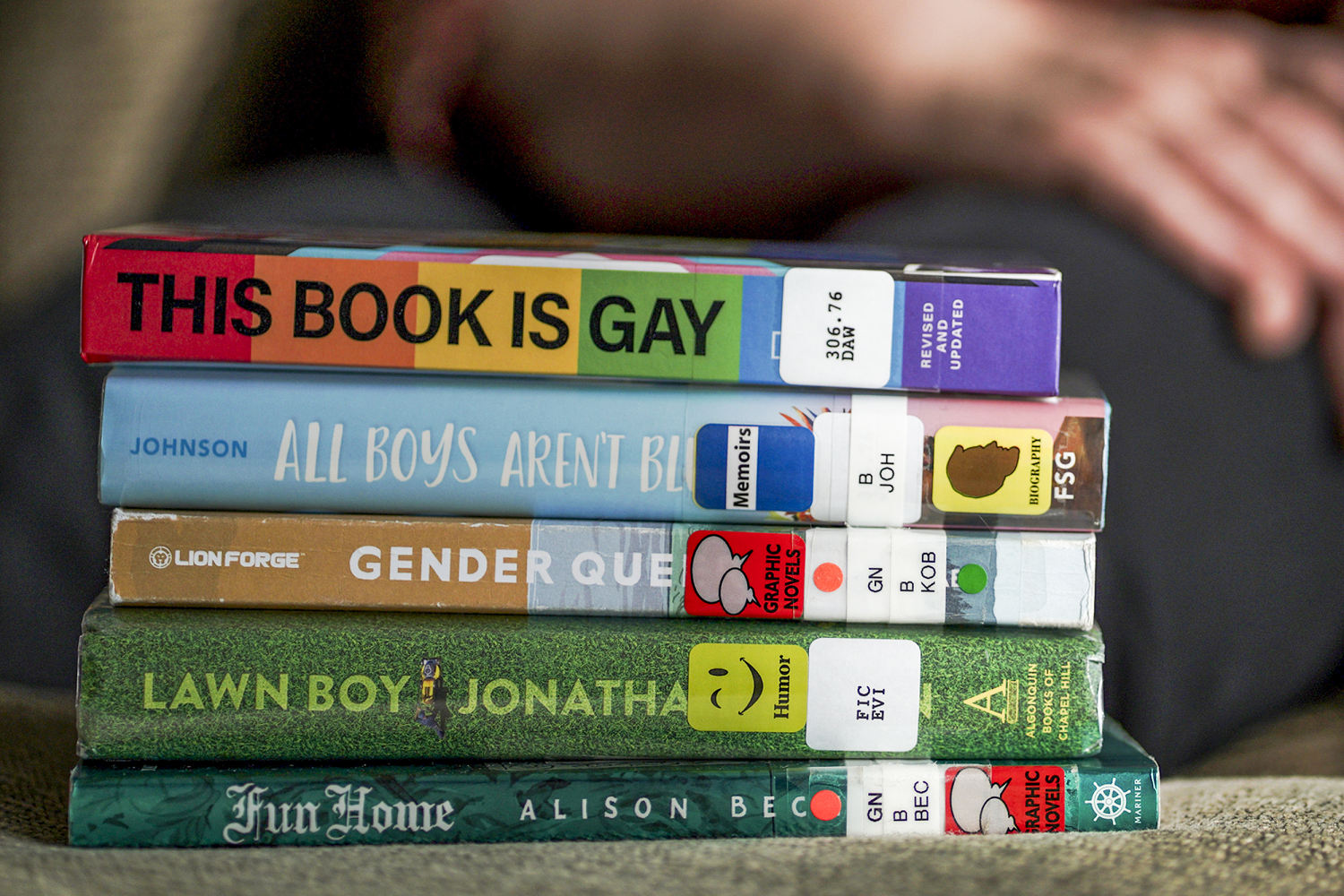Share this @internewscast.com

Less than two months into 2024, lawmakers in at least 13 states have introduced legislation that could disrupt libraries’ services and censor their materials. The new wave of bills follows a historic year of book challenges, mainly affecting titles centered on the topics of race, gender identity or sexual orientation.
“The American Library Association condemns in the strongest terms possible legislation in more than a dozen states that would threaten librarians and other educators with criminal prosecution for doing their jobs,” said Deborah Caldwell-Stone, the director of the American Library Association’s Office for Intellectual Freedom, in a statement. “This is not a culture war; it’s a threat to our democracy.”
Caldwell-Stone added, “Nowhere have we witnessed attacks on education like those currently proposed in Wisconsin.”
The Wisconsin Legislature is considering a bill to take away protections from library employees being prosecuted on charges of possessing “obscene” materials by removing public, private and tribal schools from the list of institutions exempt from prosecution for obscene materials violations.
“Those who would prosecute librarians and teachers would divert precious education resources to defending frivolous lawsuits and policing our nation’s most trusted institutions and community anchors: libraries and schools,” Caldwell-Stone said.
In Idaho, a bill proposes to prohibit librarians from making materials that include sexual conduct available to minors. Homosexuality is included in that category alongside sexual intercourse and masturbation.
Caldwell-Stone said the American Library Association is familiar with “attempts to rewrite obscenity statutes” to encompass specific books and topics, and she said she considers it a form of discrimination.
Obscenity laws in the majority of the states provide exemptions and are designed to prevent legal action against school, museum and library employees, who typically provide access to a breadth of materials.
Revoking those exemptions would mean schools and libraries would have to spend more time and resources on defense against scrutiny, Caldwell-Stone said.
She added that making cases for published resources to be considered obscene must be conducted by judges and juries with evidence brought forward by prosecutors.
“We’re seeing attempts by advocacy groups to file criminal charges against librarians and educators for books that they would like to see out of the library, and over and over again, these prosecutors decline to prosecute because there is absolutely no evidence that the books meet the most minimal standards for obscenity under the Miller Test,” she said.
The Miller Test is the U.S. Supreme Court’s legal test to determine what works are obscene. A book, a picture or a film is classified as obscene if it “describes or shows sexual conduct in a patently offensive way” or “lacks serious literary, artistic, political, educational, or scientific value.”
On Feb. 9, the Utah Senate Education Committee advanced a bill to amend provisions to identify and remove ”indecent material.” Another bill would allow public school employees in the state to be charged if “objectively sensitive” materials were made available to students.
“To open the door to the prosecution of librarians and educators for doing the work we ask them to do is to allow one individual or one group to dictate what our students learn according to their personal beliefs, regardless of the beliefs and choices of other families in the community,” Caldwell-Stone said.
The material that would be most affected includes information about puberty, reproductive health, gender identity and sexual orientation, Caldwell-Stone said.
“These books touch on topics that don’t match the values or tastes of some groups but are absolutely wanted and needed by other members of the community, and they should be able to find those books in a publicly funded library,” she said.
In addition to changing obscenity laws, some states are moving ahead with legislation that would make library board elections more frequent and create committees to process requests to move materials.
Some states are considering legislation that could target drag performers. Iowa state Sen. Sandy Salmon introduced a bill in January that could make it a crime for someone involved in a similar event at a public library to expose minors to an “obscene performance,” defined as one that includes sexual acts or “appeals to the prurient interest and is patently offensive.”
“These efforts are simply an attempt to intimidate and chill librarians and educators from serving everyone in their community,” Caldwell-Stone said.
Other state legislatures are considering changes to obscenity laws this year, including Wyoming’s, Nebraska’s and Indiana’s. Caldwell-Stone said that it is still early in legislative sessions and that initial hearings and cost concerns could affect whether the bills pass.















